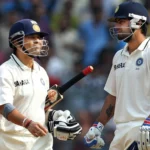Kabaddi, a sport rooted in ancient Indian traditions, has made a remarkable journey from local villages to the global stage. In this article, we will delve into the intriguing history of Kabaddi and explore the key factors that propelled it to international recognition. From its humble origins to its current status as a competitive sport enjoyed worldwide, this article will provide a comprehensive understanding of how Kabaddi became an international sensation.
The Origins of Kabaddi
Kabaddi’s history can be traced back to ancient India, where it was a popular pastime in villages. The word “Kabaddi” is believed to have originated from the Tamil word “kai-pidi,” which means “to hold hands.” Initially, it was a casual game played by farmers to demonstrate their strength and agility.
Evolution of Kabaddi
From Traditional to Modern
As Kabaddi gained popularity, it evolved from a casual village game into a more structured and competitive sport. Various regional and national tournaments began to emerge, showcasing the sport’s potential.
Introduction of Rules
To standardize the game, rules were established, including guidelines for scoring, team composition, and playing field dimensions. This standardization played a crucial role in Kabaddi’s journey to becoming an international sport.
Kabaddi’s Spread Across Borders
Kabaddi in South Asia
Kabaddi’s influence gradually expanded beyond India’s borders, making its mark in neighboring countries such as Pakistan, Bangladesh, and Nepal. It gained recognition as a regional sport with a dedicated following.
The Asian Games Inclusion
One of the pivotal moments in Kabaddi’s internationalization was its inclusion in the Asian Games. The sport made its debut in the 1990 Beijing Asian Games and has been a prominent fixture ever since.
Factors Contributing to Global Recognition
Thrilling Gameplay
Kabaddi’s unique blend of strategy, strength, and agility makes it a captivating sport to watch. Its fast-paced nature keeps spectators on the edge of their seats.
Cultural Appeal
Kabaddi’s deep-rooted connection to South Asian culture and traditions has piqued the interest of people worldwide. It provides a glimpse into the rich heritage of the region.
Competitive Leagues
The establishment of professional Kabaddi leagues, such as the Pro Kabaddi League in India, has provided a platform for players to showcase their skills and attract global attention.
FAQs (Frequently Asked Questions)
Q: When was Kabaddi first played?
A: Kabaddi’s origins can be traced back centuries, making it one of the oldest sports played in India.
Q: Is Kabaddi popular outside of South Asia?
A: Yes, Kabaddi has gained popularity in various countries and is now played and watched by people worldwide.
Q: What are the basic rules of Kabaddi?
A: The game involves two teams taking turns to send a “raider” into the opponent’s half to tag defenders and return safely to their side, all while chanting “Kabaddi, Kabaddi.”
Q: How did Kabaddi become an international sport?
A: Kabaddi’s international journey was marked by its inclusion in the Asian Games, its thrilling gameplay, and the establishment of competitive leagues.
Q: Are there any international Kabaddi tournaments?
A: Yes, international Kabaddi tournaments, including the Kabaddi World Cup, showcase top teams from around the world.
Q: What makes Kabaddi unique compared to other sports?
A: Kabaddi’s unique blend of physicality, strategy, and cultural significance sets it apart from many other sports.
Conclusion
Kabaddi’s transformation from a rural pastime to an international sensation is a testament to its rich history and enduring appeal. As it continues to capture the hearts of sports enthusiasts worldwide, the legacy of Kabaddi is set to thrive for generations to come.
That’s all! You can also checkout: Which is the first international match in Kabaddi? and For which sport Indian national team won all the world cups?







